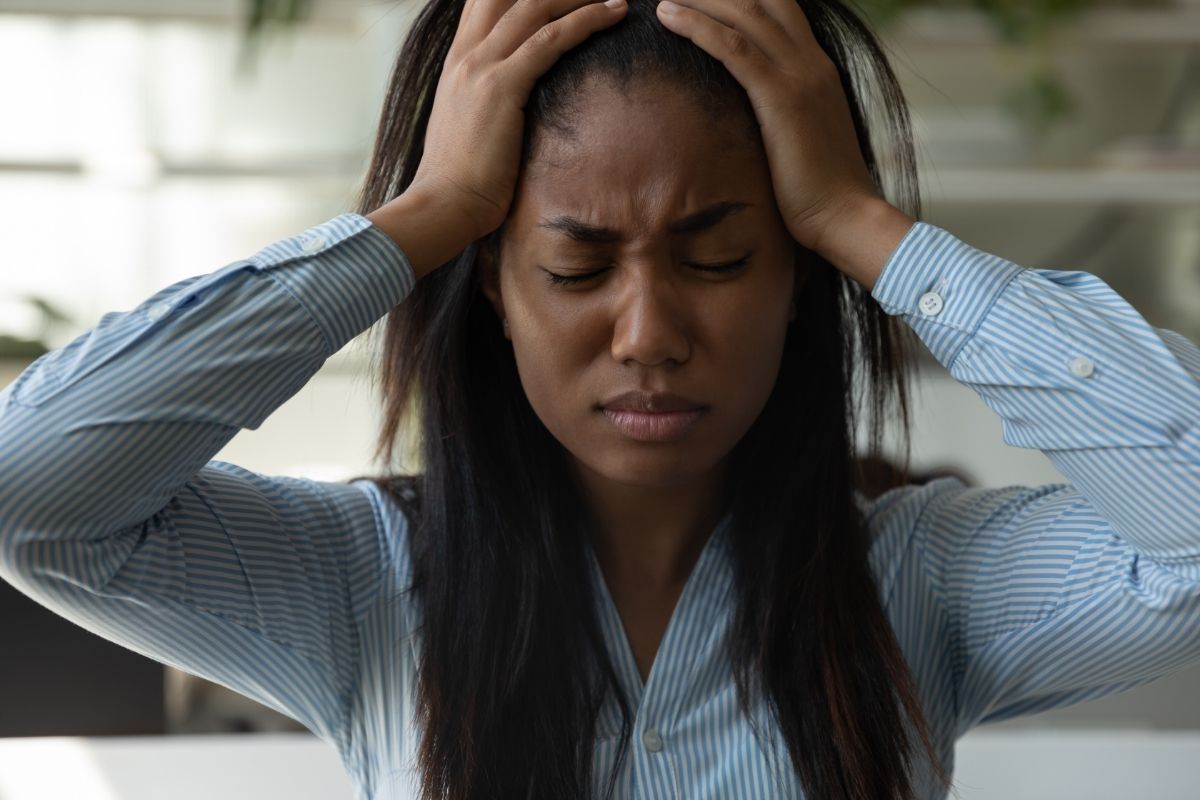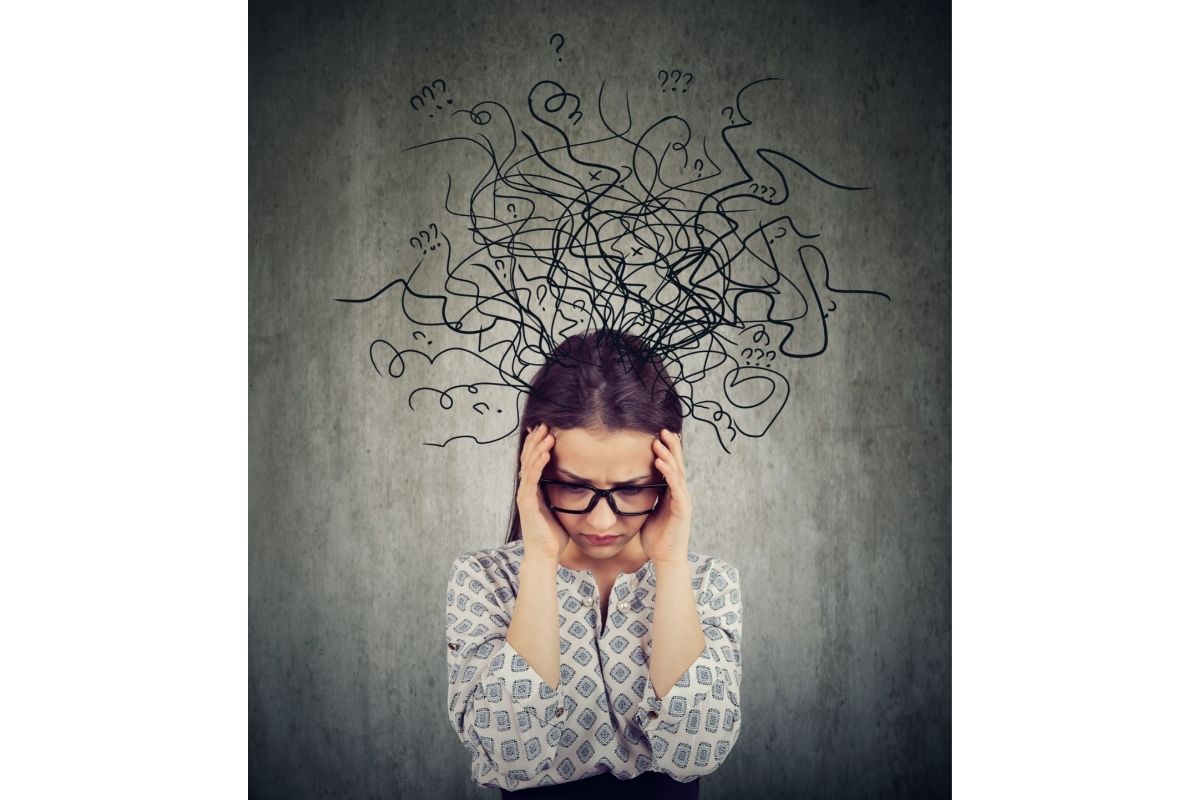What Not To Say To Someone With Anxiety

Anxiety is like a shadow that follows millions of Americans every day.
Did you know that a whopping 40 million adults in the U.S. grapple with anxiety?
That’s more people than the entire population of California!
But here’s the kicker: even with anxiety being so common, folks often stumble when trying to help their anxious friends.
It’s like walking through a minefield – one wrong step and boom!
You’ve said something that makes everything worse.
If you’ve got a friend battling anxiety, you’re probably itching to help.
But hold your horses!
Before you jump in, you need to know what **not** to say.
Trust me, I’ve been on both sides of this conversation.
Saying the wrong thing can be like pouring gasoline on a fire.
It can make your anxious buddy feel worse and even slow down their recovery.
Yikes!
So, buckle up!
I’m about to spill the beans on what you should never, ever say to someone with anxiety.
This guide is a must-read for anyone who wants to be a real friend to someone fighting this invisible battle.
1. “Just Chill Out, Will Ya?”
Telling someone with anxiety to “just stop worrying” is like telling a fish to stop swimming.
It ain’t gonna happen, folks!
For someone without anxiety, another person’s worries might seem as silly as being afraid of your own shadow.
But here’s the deal: if not worrying were as easy as flipping a switch, anxiety wouldn’t exist.
When you tell an anxious person to “just stop,” you’re basically saying their struggle isn’t real.
It’s like telling someone with a broken leg to “walk it off.”
**Anxiety isn’t a choice**, it’s a real battle they’re fighting every day.
2. “Suck It Up, Buttercup!”
“Get over it” is another phrase that should be tossed in the trash when talking to someone with anxiety.
It’s as helpful as a chocolate teapot.
This kind of talk makes anxiety sound like it’s no big deal, like it’s just a little rain cloud that’ll blow over.
But for someone in the grip of anxiety, it feels more like being caught in a category 5 hurricane.
Trust me, if they could “get over it,” they would’ve done it ages ago!
3. “What’s Got Your Knickers in a Twist?”
Asking “What do you have to be anxious about?” is like asking why the sky is blue.
Sometimes, there’s just no simple answer.
Sure, life’s curveballs can crank up the anxiety dial.
Money troubles, work stress, relationship drama – they can all make anxiety worse.
But here’s the kicker: anxiety doesn’t always need a reason.
Sometimes, it’s just the brain’s chemicals doing a wild dance.
Anxiety can pop up even when life seems peachy keen on the outside.
Questioning someone’s reasons for anxiety is like poking a bear.
It’ll only make them feel worse and maybe even guilty for feeling anxious in the first place.
Not cool, my friend.
4. “You’re Being Cuckoo!”
Calling someone “irrational” when they’re anxious is like calling water wet.
Of course, anxiety isn’t always rational – that’s kind of the point!
People with anxiety usually know their fears might not make sense.
But that doesn’t make the fear any less real.
It’s like being afraid of spiders.
You might know logically that the tiny spider can’t hurt you, but that doesn’t stop your heart from racing when you see one.
Instead of pointing out the obvious, try being a calm presence.
It’s like being a sturdy lighthouse in a stormy sea.
5. “Everyone Gets the Jitters Sometimes”
Saying “everyone gets anxious sometimes” is like comparing a paper cut to a sword wound.
Sure, they’re both cuts, but the scale is way different.
Most folks do feel nervous now and then.
But living with an anxiety disorder?
That’s a whole different ballgame.
Anxiety disorders can turn your world upside down.
They mess with your health, your social life, your work, everything.
It’s not just butterflies before a big speech – it’s more like a whole zoo in your stomach, all day, every day.
Here’s a scary fact: people with anxiety are way more likely to have thoughts about ending their lives.
That’s why we need to take anxiety seriously and not brush it off as just everyday nerves.
6. “It’s All in Your Noggin”
Telling someone “it’s all in your head” is about as helpful as a screen door on a submarine.
Sure, anxiety starts in the brain, but its effects are anything but imaginary.
We don’t tell people with other health problems that it’s all in their head.
Imagine telling someone with a broken arm, “It’s all in your bones!”
Sounds pretty silly, right?
Plus, anxiety isn’t just a head game.
It can make your whole body go haywire.
We’re talking racing heart, sweaty palms, upset stomach – the works!
It’s like your body’s running a marathon while your mind’s stuck in a horror movie.
7. “Have a Cold One, It’ll Help Ya Relax”
Offering a drink to someone who’s anxious might seem like a kind gesture, but it’s like trying to put out a fire with gasoline.
Bad idea, folks!
Sure, a drink might make you feel chill for a bit.
That’s because alcohol has this stuff called GABA that can calm you down.
But here’s the catch: when the booze wears off, anxiety often comes back with a vengeance.
Using alcohol to deal with anxiety is like using a bandaid on a broken arm.
It might cover up the problem for a bit, but it’s not fixing anything.
Worse, it can lead to a whole new set of problems.
Instead of reaching for a bottle, why not try something that won’t leave you with a hangover?
Meditation can work wonders, especially with a nice, calming diffuser in the background.
It’s like a spa day for your brain!
8. “Why So Gloomy, Gus?”
Please, for the love of all that’s holy, don’t make someone with anxiety feel like they’re raining on everyone’s parade.
They’re not trying to be Debbie Downer, I promise.
Anxiety can make the world feel like a scary place.
It’s like wearing dark sunglasses all the time – everything looks gloomy.
Instead of making them feel bad about their anxiety, why not be their personal cheerleader?
Show them that there are good people out there who’ve got their back.
Be the light in their darkness!
The Bottom Line
If you’ve said any of these no-nos before, don’t beat yourself up.
You’re not alone, and your heart was probably in the right place.
Now that you know what not to say, you can be a real superhero for your anxious friends.
You’ll be able to offer genuine support without accidentally stepping on any emotional landmines.
Remember, being there for someone with anxiety isn’t about having all the right words.
Sometimes, it’s just about being there, lending an ear, and showing them they’re not alone in this fight.
So, next time you’re talking to someone with anxiety, think before you speak.
Your words have power – use them wisely!

Author: Michelle Landeros, LMFT
Michelle Landeros is a Licensed Marriage Family Therapist (LMFT). She is passionate about helping individuals, couples and families thrive.









